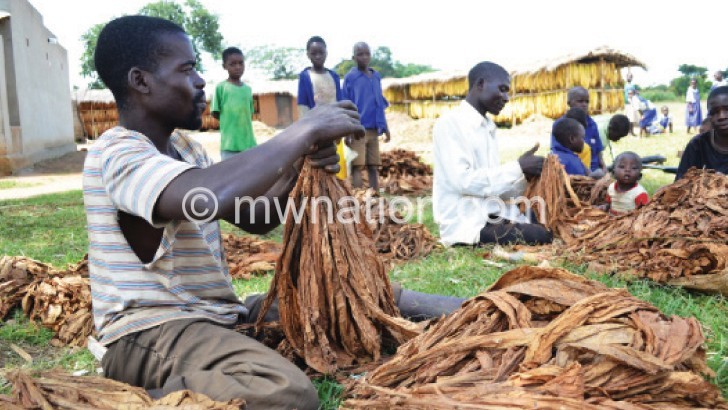Malawi against tobacco overproduction
Government of Malawi has advised tobacco growers to produce within their allocated quotas in the forthcoming growing season because it will not re-negotiate with buyers to extend the marketing selling period in case of surpluses.
Ministry of Agriculture, Irrigation and Water Development controller of agricultural services Grey Nyandule Phiri said this in Lilongwe on Friday during a tobacco symposium organised by Agricultural Research and Extension Trust (Aret).

His remarks come as the country is struggling to sell its tobacco, the main cash crop that brings in about 60 percent of the foreign earnings, due to oversupply.
As per tradition, the tobacco marketing season runs for 25 weeks, but has been extended a further11 weeks because about 20 million kilogrammes (kg) of the leaf is yet to be sold, according to authorities.
Nyandule-Phiri said it is government which negotiated the market extension, but warned this will not happen again next year.
“What they [growers] can do is to stick to the quota they will be given,” he said.
Nyandule-Phiri said to shelve overproduction, government has introduced a new registration system through which farmers will be in the database and will be allocated production quotas.
“Previously, we used to do a good job in controlling production by sticking to quota whereby farmers were given a specific amount of tobacco to produce.
“However, we stopped following the quota, and as a result, we have this problem. Now, we will start the quota arrangement again,” he said.
The Aret symposium was organised to showcase the tobacco production research technologies.
Aret director Andy Khumbanyiwa said technologies showcased at the symposium included newly-introduced high breed varieties and pests and disease control chemicals.
“What has happened over the years is that some pests and diseases have developed resistance to existing chemicals. This is why our scientists have come up with new solutions such as disease resistant varieties,” he said. n





